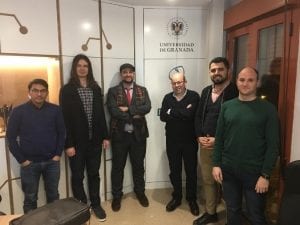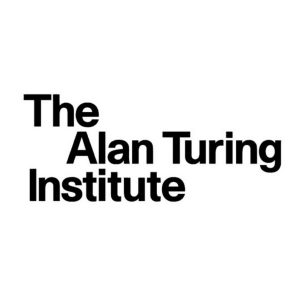
In our latest blog series, the JGI will be interviewing some of the academics at the University of Bristol who have recently become The Alan Turing Institute Fellows.
In the first of this series, Turing Fellow Iván Palomares Carrascosa has given us an overview of his exciting work with the Decision Support and Recommender Systems Research Group (DSRS).
JGI: What are your main research interests?
My main research interests are decision making under uncertainty, decision support systems, recommender systems for data-driven personalisation (with applications on tourism and leisure in smart cities, health and wellbeing, and person-to-person recommendation) and intelligent data fusion approaches.
JGI: Can you give a brief background of your experience?
I have investigated group decision making and group recommendation approaches since my doctoral studies. My main areas of research are large group decision making, i.e. how to support effective and consensual decisions when large and highly diverse groups of participants are involved. Recently, I have been increasingly devoted to investigating personalisation approaches for users and groups via recommender systems, incorporating novel data science and AI methods.
JGI: What are the big issues related to data science / data-intensive research in your area?
Incorporating multiple sources of data, e.g. users’ preferences and behaviour, contextual information and connected sensors data, to produce highly tailored recommendations in smart cities. In particular, we are studying the problem of context-aware recommendation in the domains of leisure activities, tourism and healthy habit development by citizens.
JGI: Can you tell us of one recent publication in the world of data science or data-intensive research that has interested you?
The following paper on reciprocal (people to people) recommendation is interesting: Optimally Balancing Receiver and Recommended Users’ Importance in Reciprocal Recommender Systems (AMC Recsys 2018).

JGI: How interdisciplinary is your research?
Reaching out to applications across disciplines is a top priority for us, hence we are keen on collaborations to deploy our personalisation and decision support solutions in areas such as management, participatory democracy, nutrition and physical activity, tourism, etc.
JGI: What’s next in your field of research?
Collective decision-making involving not only human participants with subjective judgements, but also artificial stakeholders, e.g. autonomous agents playing a role in the decision-making problem.
JGI: If anyone would like to get in touch to talk to you about collaborations / shared interests, how can they get in touch?
I’m very easily contactable in person, via e-mail, LinkedIn or Twitter (@DSRS_uob). Feel free also to drop us a message via our DSRS website.
Take a look at the DSRS flyer for more information about the research group.
Upcoming events
Iván will be running a workshop on recommender systems for data-driven personalisation as a part of Data Week 2019 (20-24 May 2019). The workshop, RESULTS: Interdisciplinary workshop on ‘REcommender Systems for engaging Users with healthy Living habiTS’, will constitute a discussion forum on the challenges and opportunities of personalisation approaches, data-driven Decision Support and Recommender Systems (RecSys), in the areas of fitness, wellbeing and promoting healthy living. Keep an eye on the JGI website for more details in the coming weeks!
The Turing Fellows
Thirty fellowships and twelve projects have been awarded to Bristol as part of the University partnership with the Turing. This fellowship scheme allows university academics to develop collaborations with Turing partners. The Fellowships span many fields including key Turing interests in urban analytics, defence and health.
Take a look at the Jean Golding Institute website for a full list of University of Bristol Turing Fellows.
The Alan Turing Institute
The Alan Turing Institute’s goals are to undertake world-class research in data science and artificial intelligence, apply its research to real-world problems, drive economic impact and societal good, lead the training of a new generation of scientists and shape the public conversation around data.
More information about The Alan Turing Institute can be found on their website.

